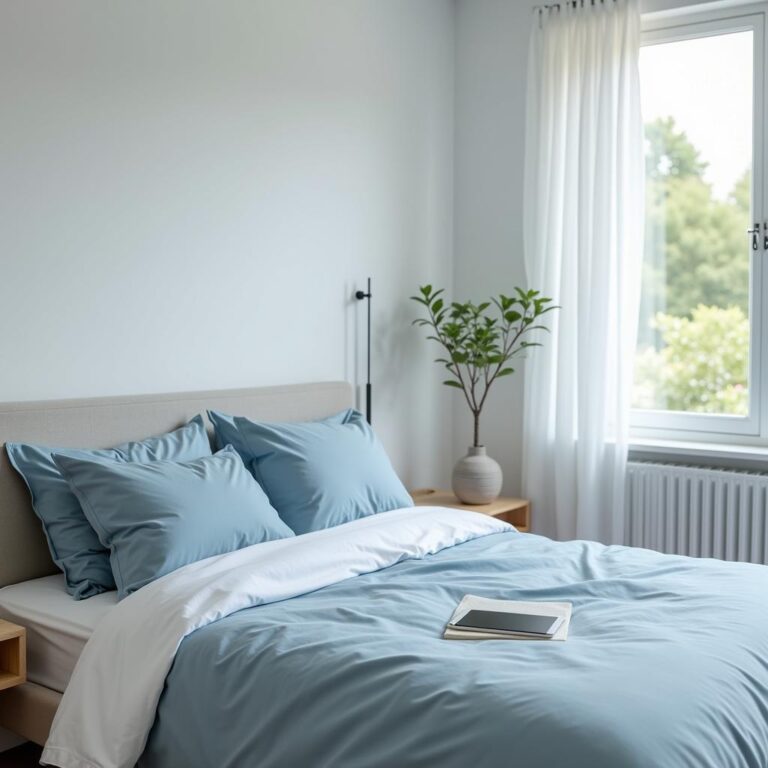How to Improve Sleep Habits Naturally: Top Tips and Tricks
In today’s fast-paced world, many individuals struggle with sleep-related issues. A restful night’s sleep is crucial for our physical and mental well-being. While there are various remedies available, many people prefer to improve sleep habits naturally. This article will guide you through effective tips and tricks to enhance your sleep quality without relying on medication.
Understanding Sleep Hygiene
Before diving into the tips, it’s essential first to understand the concept of sleep hygiene. Sleep hygiene refers to the practices and habits that promote uninterrupted and restorative sleep. Establishing a routine and environment conducive to better sleep is vital in improving sleep habits naturally.
1. Establish a Consistent Sleep Schedule
One of the most effective strategies for improving sleep is to maintain a consistent sleep schedule. Going to bed and waking up at the same time every day, even on weekends, helps regulate your body’s internal clock. This consistency reinforces your natural sleep-wake cycle, making it easier to fall asleep and wake up feeling refreshed.
2. Create a Relaxing Bedtime Routine
Engaging in calming activities before bedtime can significantly improve your ability to fall asleep. Consider incorporating a pre-sleep routine that includes activities such as:
- Reading a book
- Taking a warm bath
- Meditating or practicing mindfulness
- Listening to soothing music
These activities signal to your body that it’s time to wind down, making it easier for you to drift off into a peaceful sleep.
3. Optimize Your Sleep Environment
The environment in which you sleep plays a significant role in sleep quality. Here are several tips to create a sleep-friendly space:
- Keep it Dark: Use blackout curtains or an eye mask to block out light, which can interfere with melatonin production.
- Control the Temperature: Most people sleep best in a cool room. Aim for a temperature between 60°F and 67°F (15°C to 19°C).
- Minimize Noise: Use earplugs or a white noise machine to mask disruptive sounds.
- Invest in a Comfortable Mattress and Pillows: Make sure your sleeping surface supports your preferred sleeping position.
4. Be Mindful of Your Diet
Your diet can greatly impact the quality of your sleep. Consider the following dietary tips to boost your sleep naturally:
- Avoid Heavy Meals Before Bed: Large meals close to bedtime can lead to discomfort and indigestion, preventing sleep.
- Limit Caffeine and Nicotine: These stimulants can interfere with your ability to fall asleep. Aim to avoid them in the hours leading up to bedtime.
- Incorporate Sleep-Promoting Foods: Foods rich in magnesium, such as almonds and spinach, or those containing melatonin, like tart cherries, may aid sleep.
5. Exercise Regularly
Physical activity is crucial for overall health and well-being, including sleep. Regular exercise can help you fall asleep faster and enjoy deeper sleep. Aim for at least 30 minutes of moderate exercise most days of the week. However, it’s wise to avoid vigorous workouts close to bedtime, as they could have the opposite effect and make it harder to sleep.
6. Limit Naps
While short naps can be refreshing, long or irregular napping during the day can affect your nighttime sleep. If you choose to nap, limit it to 20-30 minutes and try to schedule it earlier in the day. This practice helps ensure that you are tired enough to sleep well at night.
7. Put Away Electronic Devices
With the increasing use of smartphones and tablets, many individuals find it challenging to disconnect before bed. The blue light emitted by these devices disrupts melatonin production, leading to difficulties in falling asleep. Aim to turn off electronics at least an hour before bedtime. Instead, try to engage in non-screen activities to promote relaxation.
8. Manage Stress and Anxiety
Stress and anxiety are common barriers to a good night’s sleep. Implement stress-reducing tactics such as:
- Deep Breathing Exercises: Practice slow, deep breaths to calm your mind.
- Mindfulness Meditation: Learn to focus on the present moment to reduce anxious thoughts.
- Journaling: Write your thoughts and feelings down before bed to clear your mind of lingering concerns.
9. Limit Fluid Intake Before Bed
While staying hydrated is essential, drinking large amounts of fluids in the evening can result in frequent trips to the bathroom during the night. To minimize sleep disruptions, try to limit your fluid intake in the hours leading up to bedtime.
10. Seek Natural Supplements
If you are still struggling with sleep after trying these tips, consider natural supplements like melatonin, valerian root, or chamomile tea. However, it is advisable to consult with a healthcare professional before introducing any new supplements into your routine.
Conclusion
Improving sleep habits naturally is achievable through a combination of consistency, environment, and lifestyle adjustments. By prioritizing your sleep hygiene and incorporating the above practices, you can cultivate healthier sleep patterns that will ultimately lead to better overall health and well-being. Remember that changes may take time, so be patient with yourself as you implement these strategies.
Sweet dreams await you as you embark on this journey to better sleep! Start making these small changes today and enjoy the benefits of restorative sleep for years to come.







